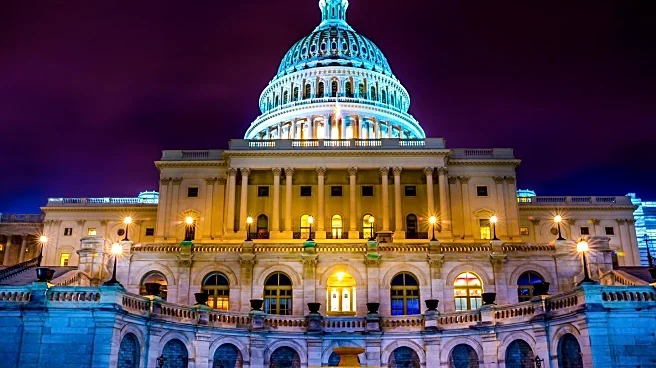What's Happening?
A study conducted by researchers at Harvard University and Mass General Brigham has found that the No Surprises Act (NSA) is effectively reducing out-of-pocket costs for patients. The study examined 17,351 privately insured adults, revealing that those in states with new protections against surprise billing experienced a significant decrease in out-of-pocket spending, averaging $567 annually. The NSA has reportedly shielded patients from surprise billing more effectively than other policy changes, such as Medicaid expansion and drug pricing policies under the Inflation Reduction Act.
Why It's Important?
The findings underscore the NSA's role in alleviating financial burdens associated with unexpected medical bills, which can be a significant source of stress for patients. By reducing out-of-pocket costs, the NSA is contributing to greater financial stability for individuals, particularly in states with newly implemented protections. However, the study also highlights ongoing challenges, such as the high rate of disputes won by providers backed by private equity firms, suggesting a need for further regulatory intervention to ensure fair resolution processes.
What's Next?
The study recommends extending NSA protections to ambulance services and improving healthcare literacy to prevent additional charges. Efforts to increase public awareness of NSA protections and assist patients with surprise billing complaints are necessary. Policymakers may need to explore additional strategies to alleviate high healthcare spending and medical debt, especially among socioeconomically disadvantaged patients. Future research will be essential to assess the broader impact of the NSA on healthcare costs and utilization.








